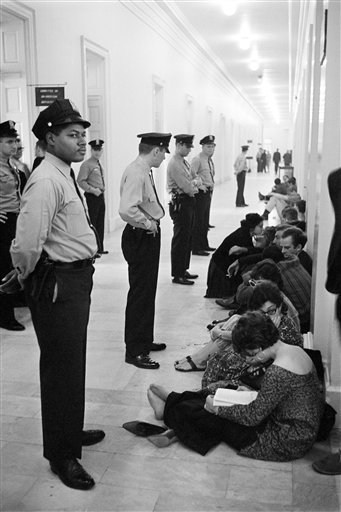In Zemel v. Rusk, 382 U.S.1 (1965), the U.S. Supreme Court refused to interpret the First Amendment so as to grant a citizen an absolute right of travel to other countries to assess the effects of U.S. policies abroad.
Congress gave authority to executive branch to regulate foreign travel
Although decisions like Edwards v. California (1941) have recognized broad rights for domestic travel, often citing the liberty interests protected by the Fifth Amendment, Congress has granted authority to the executive branch to regulate foreign travel via its power to issue passports to U.S. citizens for travel in other countries under the Passport Act of 1926 and also in section 215 of the Immigration and Nationality Act of 1952. It also gave the executive branch the right to refuse passports in cases such as war and national emergency.
State Department restricted travel to Cuba
Prior to 1961, the United States did not require Americans to have passports to enter any Latin American country, but on January 3, 1961, the United States severed diplomatic relations with Cuba, and later that month it began requiring passports for citizens who wanted to visit Cuba. In addition, the State Department restricted travel to Cuba to “persons whose travel may be regarded as being in the best interests of the United States, such as newsmen or businessmen with previously established business interests.”
Zemel was denied passport to Cuba
Louis Zemel, a U.S. citizen, was a ski resort operator in Middlefield, Connecticut, who wanted to travel to Cuba. He made a formal request to the State Department in early 1962, stating that he wanted “to satisfy my curiosity about the state of affairs in Cuba and to make me a better informed citizen.” The government denied his request because it did not meet the standards for travel to that country.
Zemel filed a complaint against this decision less than two months after the Cuban Missile Crisis. He brought suit against Secretary of State Dean Rusk and Attorney General Robert Kennedy in federal district court, arguing that this “travel ban is a direct interference with First Amendment rights of citizens to travel abroad so that they might acquaint themselves at first hand with the effects abroad of our Government’s policies.” He also claimed that the Passport Act of 1926 and the Immigration and Nationality Act of 1952 were unconstitutional. The district court affirmed the constitutionality of the laws.
Court upheld travel restrictions
The U.S. Supreme Court affirmed the lower court’s ruling in a 6-3 decision, agreeing both that the secretary of state had the power to refuse to validate the passports of U.S. citizens who wanted to travel to Cuba and that this invalidation was constitutional. Chief Justice Earl Warren, who wrote the majority opinion, said, “The right to speak and publish does not carry with it the restrained right to gather information.” He also stated that “the fact that a liberty cannot be inhibited without due process of law does not mean that it can under no circumstances be inhibited.”
Chief Justice Warren distinguished this situation from that presented in Kent v. Dulles (1958) and Aptheker v. Secretary of State (1964). In those two cases, the Court had focused on restrictions that applied only to people who associated with or believed in unpopular groups such as the Communist Party. The Zemel case dealt with foreign policy issues that apply to all citizens. Because the travel ban limited action rather than beliefs or speech, it did not violate the First Amendment.
Justice William O. Douglas argued in dissent that the right to travel to find out information about a country “gives meaning and substance to freedom of expression and freedom of the press.” He feared that the decision would empower government officials to allow or deny people to travel based on political whims.
This article was originally published in 2009. Dennis Miles is a reference and instruction librarian at Texas Wesleyan University.

